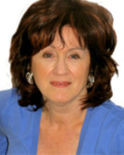Healthy adult relationships produce better health and a secure home for children

Research tells us that on average couples in trouble wait
6 years to seek treatment. Since you're looking at this site,
you probably recognize your relationship needs some help.
Perhaps your spouse disagrees, or together you agree that
your relationship can't continue the way it is. Congratulations for recognizing you want and need more from your relationship. It can be hard. Sometimes simply making the decision is the most difficult part of therapy.
Be assured, it is possible to have the love you want because it is possible to repair, reconnect and renew your relationship.
6 years to seek treatment. Since you're looking at this site,
you probably recognize your relationship needs some help.
Perhaps your spouse disagrees, or together you agree that
your relationship can't continue the way it is. Congratulations for recognizing you want and need more from your relationship. It can be hard. Sometimes simply making the decision is the most difficult part of therapy.
Be assured, it is possible to have the love you want because it is possible to repair, reconnect and renew your relationship.
Common Myths and Obstacles of Couples Therapy
|
1. The therapist will take sides. Unfortunately this can happen with some therapists. This makes selecting a therapist who specializes in couples counseling very important. A couples therapist trained to recognize how both partners contribute negative patterns of interaction prevents taking sides. Even when one of you is convinced the other is the one who needs therapy, it's important to realize you're in this relationship together.
2. We are too far gone and should break up. Again there are some therapists who will make this declaration and encourage divorce. But the role of therapists trained in the most effective forms of couples therapy will help you understand how your relationship went wrong and will help you renew your relationship. Of course there are cases when parting is the best option and a good therapist can help you part as amicably as possible. This is a very difficult decision to make and deciding whether to stay or go is always your choice. Some couple need help with discernment. 3. Talking about our problems will make things worse. Many couples experience their own attempt to discuss problems worsens them. This is understandable because you are very close to your issues. You may have had previous therapy where you felt worse after the sessions. Therefore it’s important that the therapist creates a safe environment to discuss the issues productively and get to the root of the problem rather than simply rehash the most recent argument. You can gain valuable insight into the problems and how they fit into a negative pattern. You’ll have the ability to see each other’s struggles and behaviors with new eyes and ears. |
4. We need individual therapy before we can work on our relationship. A growing body of evidence suggests just the opposite. It’s not uncommon for individual therapy with a therapist who doesn't have systemic perspective to lead to ending the relationship. Couples therapy can actually reduce an individual’s symptoms of depression, anxiety, post traumatic stress disorder (PTSD) and other psychological disorders. However, couples therapy is not always the only treatment needed when a partner has significant psychological symptoms or an addiction. In these cases the couples therapist and individual therapist can consult to bring about excellent results. When the relationship has suffered, couples counseling is often the best place to start.
5. My partner doesn’t think we need therapy. If one of you feels you do, then there is no question therapy is needed. Your partner may be concerned he or she will be ganged up on. Some believe they will be told they are at fault or believe the myths listed above. Talk to them patiently when you are not arguing, to discuss your sincere belief that the two of you would benefit from an unbiased point of view. Explain to your spouse or partner that they are so important, you need to learn to solve problems and stay close. Try to help them understand your need is very important and that each of you will benefit. 6. We don't have the time to meet weekly. This can be the case for busy couples. This is one reason private 2-3 days intensives make perfect sense. Intensives are intense. You'll have the opportunity to make tremendous progress in a short period of time. Often this focused commitment to your relationship and structure is more effective than weekly meetings. |
Selecting a Therapist
When you select a therapist to help you with the most important relationship of your life, research his or her qualifications. Ask if couples therapy is their specialty? How long they've been treating couples? What is their therapeutic orientation? And then meet them to decide if you click. Finding a therapist who is well-trained in the most up-to-date models of therapy, in addition to feeling comfortable with him or her is the best indicator for success.
Karen's primary therapeutic orientation is attachment based therapy, more specifically Emotionally Focused Couples Therapy (EFT). EFT is empirically proven to be 45-60% more effective than other modalities of couples work. With EFT more than 90% of couples report significant improvement in their relationship. Since Karen is dedicated to couples therapy, she is also dedicated to attachment based therapy. She began to study EFT after reading a paper in the Journal of Marriage and Family Therapy in 2003. She recognized through her reading of that 1 study that EFT was different and went to the core issues of adult romantic relationships. It was then she began training and her orientation transitioned to Emotionally Focused Couples Therapy.
In addition to extensive EFT training and supervision Karen has taken post-graduate training in step-families, infidelity repair, mood disorders and has earned more than 50 hours of post-graduate training in sex therapy. This training merges very well with EFT and also goes to the core issues that can disrupt adult romantic relationships..
Karen is grateful to have earned her clients' trust. By treating couples and helping them achieve a safe, secure and happy relationship, she believes she is also helping the entire family enjoy the benefits of a healthy home.
Karen's primary therapeutic orientation is attachment based therapy, more specifically Emotionally Focused Couples Therapy (EFT). EFT is empirically proven to be 45-60% more effective than other modalities of couples work. With EFT more than 90% of couples report significant improvement in their relationship. Since Karen is dedicated to couples therapy, she is also dedicated to attachment based therapy. She began to study EFT after reading a paper in the Journal of Marriage and Family Therapy in 2003. She recognized through her reading of that 1 study that EFT was different and went to the core issues of adult romantic relationships. It was then she began training and her orientation transitioned to Emotionally Focused Couples Therapy.
In addition to extensive EFT training and supervision Karen has taken post-graduate training in step-families, infidelity repair, mood disorders and has earned more than 50 hours of post-graduate training in sex therapy. This training merges very well with EFT and also goes to the core issues that can disrupt adult romantic relationships..
Karen is grateful to have earned her clients' trust. By treating couples and helping them achieve a safe, secure and happy relationship, she believes she is also helping the entire family enjoy the benefits of a healthy home.
"We researched before we decided to see a therapist and knew EFT was the way we wanted to go. When we met Karen we were delighted with our choice. She knows her stuff."
About EFT Dr. Sue Johnson
Developer of EFT Dr. Sue Johnson
Developer of EFT
Emotionally Focused Couples Therapy (EFT) is a responsive, interactive and experiential form of therapy. We identify the negative patterns that lead to trouble, what motivates these cycles and how to get out of them. We help you develop an understanding of the emotions that underly the problem behaviors and reactions behind touchy topics and chronic problems. EFT goes to the heart of the matter. EFT goes deeper to the core issues that create the repetitive negative cycles that keep you stuck. EFT is based on adult attachment theory and has been empirically studied extensively. Over the years since it was developed, it continues to be refined and now integrates the neuroscience of love to further understand the nature of love.
EFT is known to be the most effective form of couples therapy available today. To learn more about EFT from the primary developer, Dr. Sue Johnson, visit: www.ICEEFT.com or visit: www.DrSueJohnson.com. Attachment TheoryEvery relationship revolution has leaders and heroes. Attachment theory's hero is John Bowlby. Bowlby studied children and their attachment to their primary caregivers. The thought of effective, secure and reliable bonding with children has changed how children are parented today. We know that physical and emotional attachment is essential to a child's mental health. Bonding has seeped into popular culture and is well understood and intuitive to a parent's instinct.
Bowlby died in 1990. He didn't live to see the second revolution sparked by attachment theory but his work lives on. Dr. Sue Johnson and others began their work through observation of couples in therapy and rigorous empirical study. They found that adults need a secure base and reliable responses from their partner as much as a child needs a secure bond with their caregivers. Therefore, Adult Attachment Theory and Emotionally Focused Couples Therapy was born. Empirical studies have proven EFT to be the most effective form of couples therapy available. The research tells us that EFT is 45-60% more effective than other modalities with 90% of couples reporting improvement. |
EFT Multi-dimensional & effectiveCouples therapy is multi-dimensional and complex. Each individual has his or her own history and perspective, and both are valid and need to be considered and understood. The relationship itself has its own history and complexity. In some ways couples therapy provides 3 in 1 therapy. Each individual is helped with his or her personal issues like addictions, mental or behavioral disorders, sexual desire discrepancies and trauma history in the context of their relationship. This is special and important work when it's done in the company of your partner and is understood as part of the cycle and your personal attachment style. This is a very intimate and effective way for the couple to grow closer. While the relationship is the primary focus, the negative communication patterns and past injuries to the relationship are addressed. Trust is gained and a closer bond is developed. The relationship is strengthened to develop a secure bond . So you, your partner and your relationship benefit together.
What to ExpectKaren will meet with you together for your initial appointment. She will learn the purpose of seeking counseling and your goals. She will be sure to give each of you an opportunity to share your personal perspective. It's common to be nervous about the first session but you'll soon realize talking with Karen and getting familiar with each other will help you relax and feel more comfortable. She will work hard to to see both side, be heard and understood.
After the initial joint appointment she will see each of you individually. After these sessions she will meet with both of you together again and be able to give you a clear idea of the plan for your therapy. There won't be any blame or judgment. Through interactive and experiential processes your strengths will be incorporated and you will experience new ways of understanding and meeting one another's needs. |
